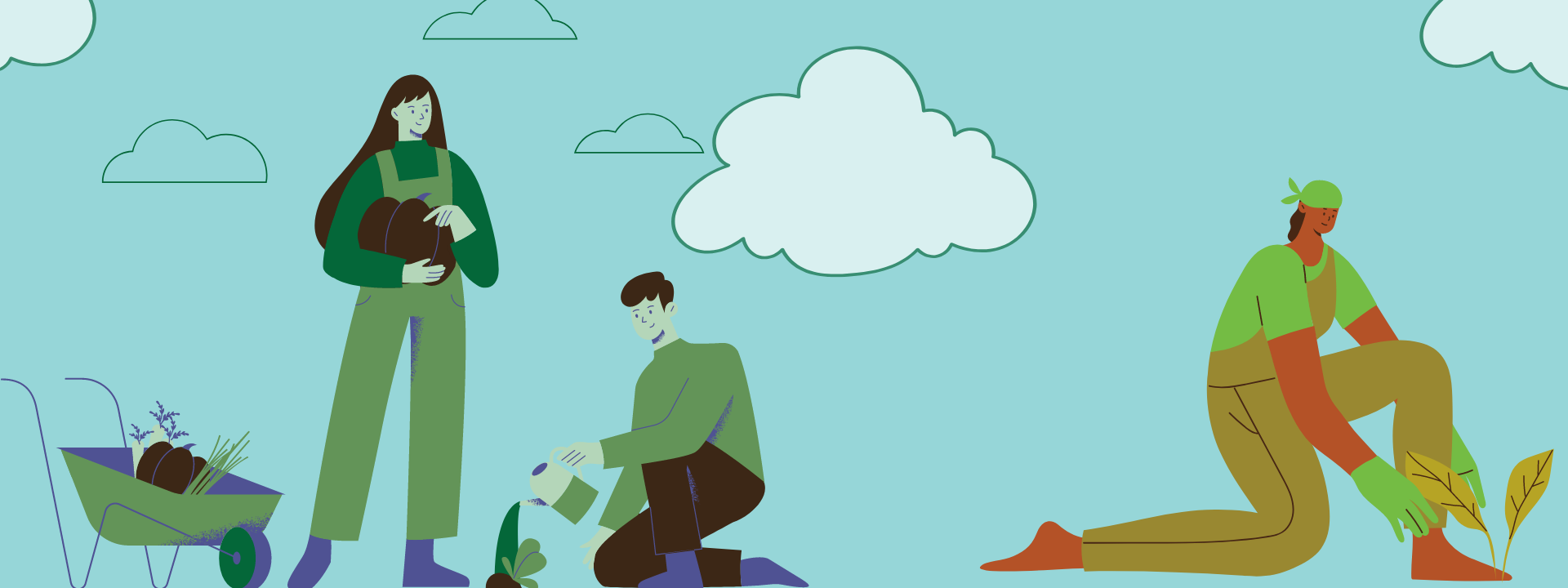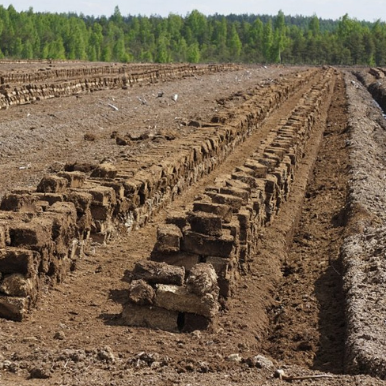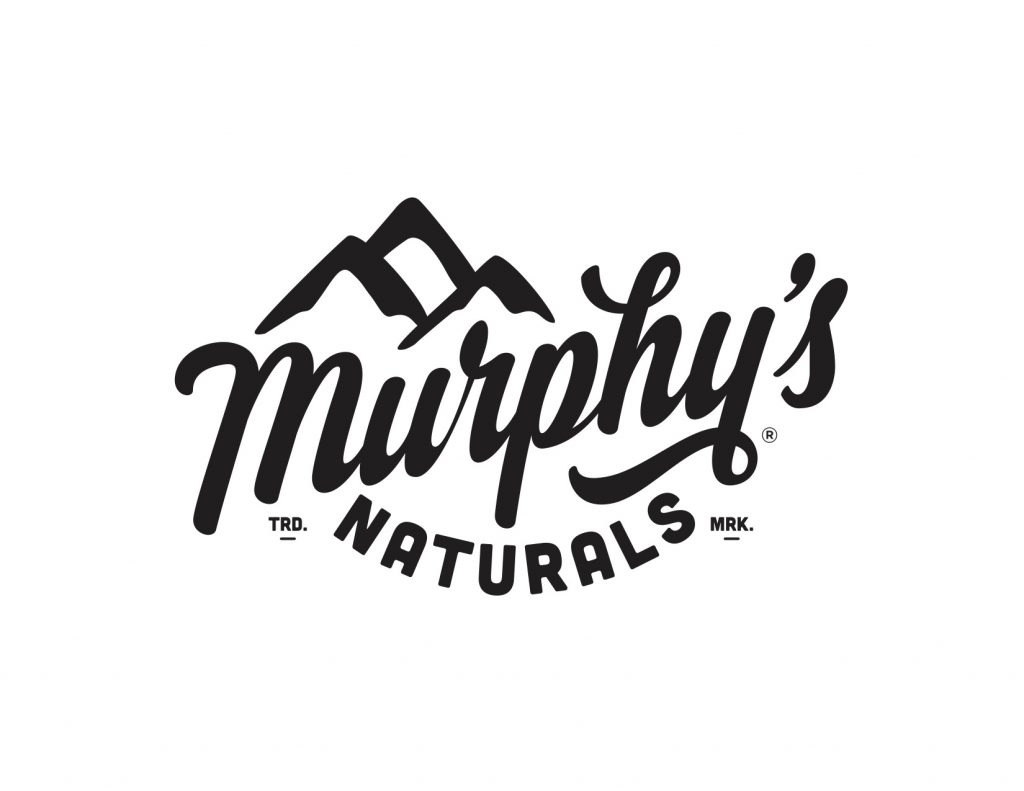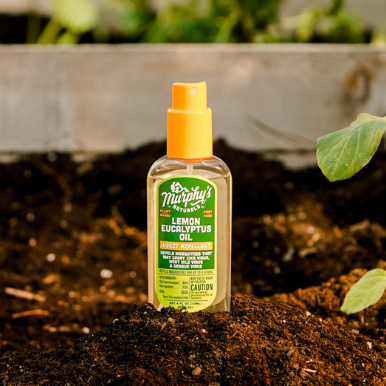5 Sustainable Gardening ideas!
Will you be heading outdoors to tend to your green space as the weather warms?
There are a myriad of benefits and perks when you embrace gardening as a hobby: physically, mentally and financially!
The average person burns 175-300 calories per hour doing light gardening tasks such as planting and potting. Heavier duty gardening tasks such as tilling a garden and pushing a wheelbarrow will burn 450-550 calories per hour. – CaptainCalculator
A study published by the National Institutes of Health found that gardening significantly reduced the body’s stress hormone, improved mood, lowered irritability, reduced headaches and pain and decreased the need for medication. – MVHealthNews
A vegetable garden can save you money! Especially if you seed-save and use up everything: Turn browning basil to pesto, and on-the-cusp-of-squishy tomatoes into paste.
When we talk about ‘being green’ or being ‘environmentally friendly,’ most of us would consider the act of gardening itself a form of eco-activism: you’re tending to a green space, bringing plant-life into the world, and creating homes for insects and critters.
Remember though: When tending to your green space, it makes sense to do it with the environment in mind.
Keep it green this spring (and beyond!) with our Top 5 Sustainable Gardening Tips for 2022.
#1: Steer clear of peat moss
Peat moss is often sold by the bag as ‘soil conditioner’ for your yard. It’s also a great foundation for shipping plants!
Why? It is:
Cost effective;
It holds both air and water;
And it’s somewhat resistant to pests.
It also has major pitfalls: Peatlands (from where peat moss is sourced) store a third of the world’s soil carbon, and their harvesting and use release carbon dioxide.
A major issue with harvesting from peatlands is their potential for combusting (this already happened in 2015 in Indonesia on land cleared for plantations).
Peatland fires account for up to 5% of human-caused carbon emissions, according to the United Nations, which last year launched a peatlands conservation initiative.
If you want to hear more about this, The Washington Post put together this fantastic article.
Our Takeaway: Seek out sustainable alternatives to peat moss. The Farmers Almanac suggests: Compost, rice hulls and pine needles as earth-safe alternatives.
#2: You can't keep it green if you're stuck indoors!
Don’t let bugs be the reason your flower garden goes unkempt and your veggies flounder this year.
While DEET is a well-known bug deterrent, it is also a plasticizer that damages plastic or nylon-based gears, think: rain jackets, camping gear and tents.
We’re suggesting you look to products that encourage you to enjoy life outdoors by creating products that celebrate nature and inspire good … like Murphy’s Naturals!
Based in Raleigh, NC, Murphy’s founder, Philip created a plant-based solution that would allow him to spend more time outdoors with his mosquito-magnet wife, Pam.
Philip’s creation? Murphy’s Naturals Lemon Eucalyptus Oil Insect Repellent Spray.
This five star rated mosquito and tick repellent has just THREE ingredients:
- Oil of Lemon Eucalyptus (30%)
- Distilled Water
& - Ethanol made from corn (70%)
The spray is DEET-free (no damaged gear, here!), and it’s made with sustainably sourced ingredients. It’s also packaged with 25% post-consumer recycled materials.
Recognized as a certified B Corporation, Murphy’s Naturals is globally recognized as delivering the highest standard for corporate social responsibility.
An amazing fun-fact about Murphy’s Naturals is that the company gives 2% of all revenues to goodwill organizations. 💚
Our takeaway? Look for bug repellents that are kind to you, and the planet!
#3: Harvest rain water
🌱 Did you know that rain barrels can help save over 1000 gallons of water?
Here are 3 speedy perks to installing a rain barrel:
Some rain barrel owners have said the installation of a barrel has saved them $485 (CAD) a year!
Installing a rain barrel can help prevent ponding and flooding in your yard. This can help control moisture levels around your house foundation to reduce the risk of flooding.
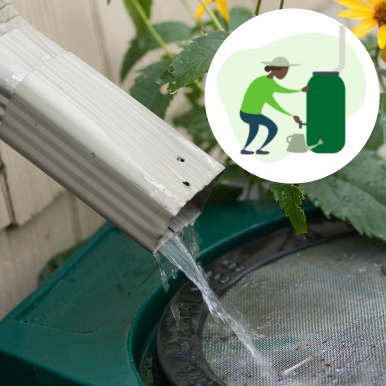
Rain barrels help reduce pollution runoff! As the water runs along a surface, it can pick up litter, petroleum, chemicals, fertilizers, and other toxic substances which end up in our local waterways.
We’re suggesting you look in to harvesting rain water this year. It’s a great act of green and can even reduce your water bills!

Author
Stephanie Ward
Stephanie started her journey towards a sustainable lifestyle young: at the age of 12, she started a ‘compost bin’ in a margarine container — and left it for her mum to find under the sink many weeks later … Needless to say, her eco-skills have improved since then! A vegan of 10+ years, a staunch animal welfare advocate, and an avid recycler, you’re most likely to find her on a hike, or in the garden.
#4: Consider your tools!

“A garden products study completed by The Ecology Center looked at 90 different garden hoses and discovered disturbing levels of each of those chemicals. Some of the toxin levels exceeded safe drinking water standards by 20 times or more.” – Eartheasy
You want to make sure you, your kids, pets and your budding vegetable plot are safe!
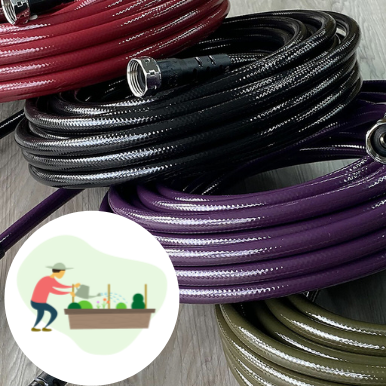
Our partners in sustainability, Eartheasy wrote a fantastic blog post on this which you can see below.
Takeaway Tip: Research your gardening tools, and opt for people and pet safe products.
#5: What exactly are you planting?
Have your seeds been treated with:
😟 fungicides,
😟 pesticides,
😟 or insecticides – all of which can be harmful to soil ecosystems and the greater environment?
These treatments are often used in gardens and agricultural lands to reduce the risk of crop failure due to insects, pests, and fungus in the garden.
Instead of implementing the use of chemicals, opt for seeds that are as natural as they can be!
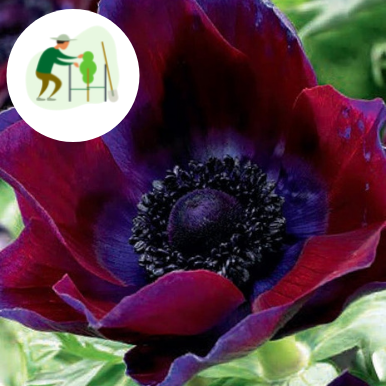
🌼 West Coast Seeds stock a wide range of products that aim to improve our environment, including:
🌱 Pollinator friendly flower and plant seeds,
🌱 Ecologically friendly lawn solutions,
🌱 and sustainable seeds for herb and vegetable gardens.
Keep your gardens and platers as au-natural as possible this season!
We hope you enjoyed reading these sustainable gardening tips! Would your community enjoy this read? Easily share this blog to your platforms with the buttons below!
Join Our Email Community
Gain exclusive access to green trends, tips, and tricks when you sign up for our free newsletter. Enter your email to join our community of changemakers!
More Blog Posts:
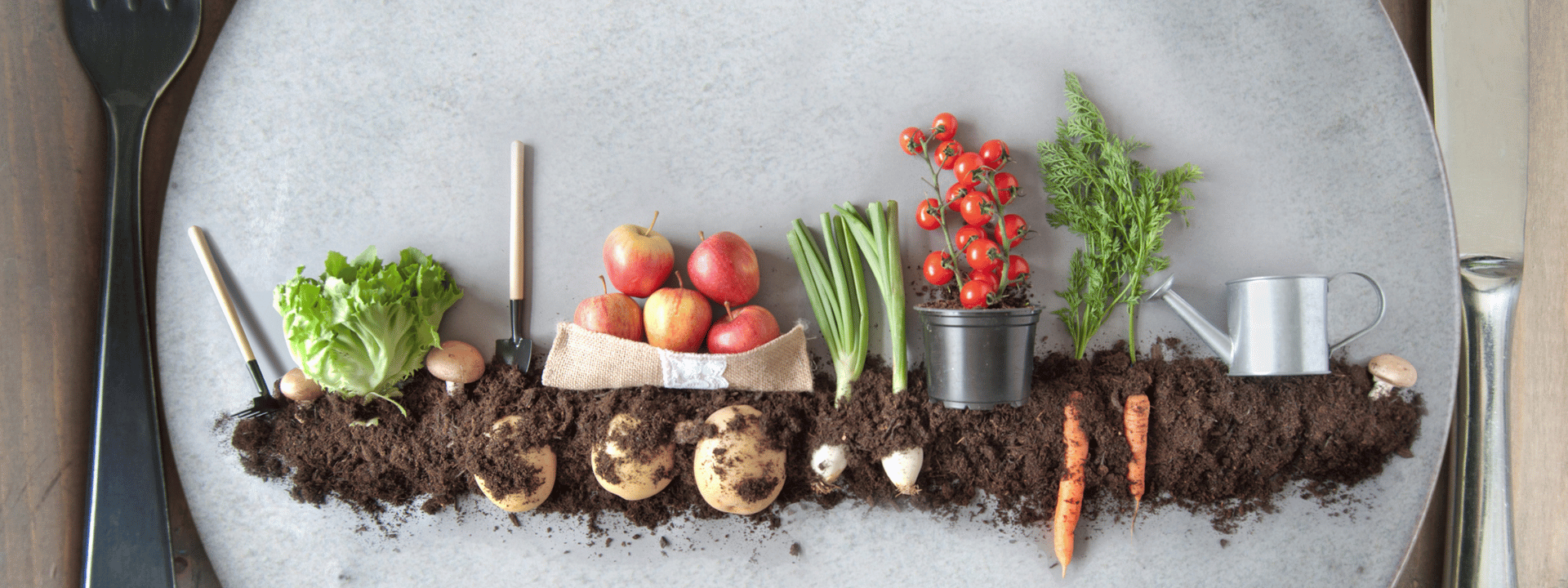
The Guide to Veganuary!
Whether you are going full vegan or starting to eat less meat, our guide to veganuary will help you go plant-based in 2023.
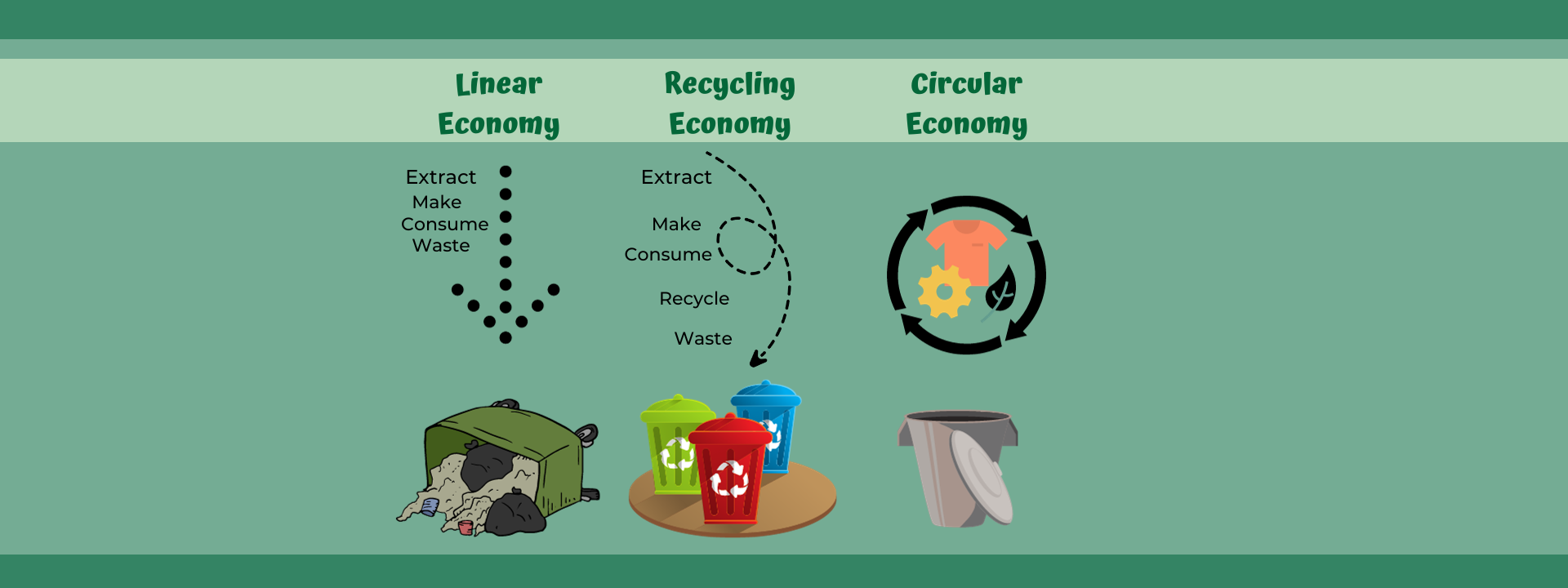
5 Circular Economy Companies in Canada To Celebrate Waste Reduction Week
Say hello to 6 Circular Economy Companies in Canada this October as we Celebrate innovators during Waste Reduction Week.

